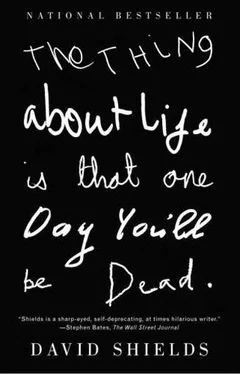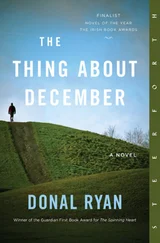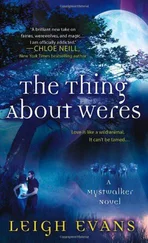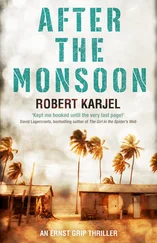Two weeks later I did. It was on a Friday night and I asked her about seeing her the next night and quickly apologized about calling on such short notice. She said there was no need to apologize, invited me to her place for dinner, and said I’d be as welcome as the flowers in May. Damn if she didn’t repeat that silly “flowers in May” line every single time I called to arrange the time and place of our next meeting.
On that first evening together, I helped her wash the dishes after dinner. She said something about me being a real handy man to have around the house and added that her husband, a busy Santa Clara doctor, never washed or dried a dish in all the years they were married. This remark of hers about my being so helpful was the perfect opening for one of my sure-fire laugh-getters and I promptly said, “I’m not one of those men who thinks a woman’s place is in the stove. No macho male me.” She chuckled appreciatively and said something about my being a nice guy and added she was glad she ran into me at the senior center that night.
At 10:00, Virginia suggested we watch the news. We sat on the sofa and I held her hand. After about 15 minutes, I tried to kiss her—nothing serious, but she pulled back and pleaded with me to go slowly and be patient and told me I was the first man she’d dated since her husband’s death three years ago. She followed that up with the words I was to hear over and over: “Milt, I need a little more time.”
No problem, I assured her that first night. We watched the rest of the news holding hands. Not bad, I remembered saying to myself during the 45-minute drive home. Give it time and it will work out. Couldn’t miss. I was a lonely widower with a lot of time and a little money and she was a lonely widow, anxious for companionship. Plus. So she hinted, not very subtly.
Several months later, after attending a lavish 40th anniversary banquet for a couple Virginia and her late husband had known for many years, we got back to her apartment about midnight. I had had more than my usual quota of drinks that night and had danced with her five or six times; that was way above my quota, too. She seemed to cling to me during those slow numbers; she had never done that before.
I felt a little more romantic, a little hornier when we got back to the apartment. As soon as we got inside the apartment and closed the door, I grabbed for her clumsily, but she parried my thrust, saying she had to powder her nose and wanted to get out of her confining and dressy evening clothes. I read into her words a suggestion that the patience I had displayed, when she had asked early on in our relationship for more time on my part, would pay off.
In preparation, I took off my dark jacket and draped it over the chair. The same with my black bow tie. I also took my shoes off and pushed them under the sofa, then waited like an eager schoolboy.
Virginia came out of the bathroom, put a tape with some nice dreamy music on the stereo, and sat down beside me. I grabbed her, pushed her back on the sofa, and reached for her mouth. She pushed me away, asking me to please take it easy. Then I tried to slide my hand inside her bathrobe and fondle her ample breasts.
And that’s when she said what she said on our very first date: “Please don’t rush me, Milt. I need time.” But that night I wasn’t buying what I was convinced was a line or patent ploy. I erupted like Vesuvius, shouting, “Exactly how much more time do you need? Your husband’s been dead for three years now, right?” And what was all this phony business about the wonderful marriage she and her husband had for the nearly 40 years they were together? I reminded her that she’d told me one night that she’d had three extramarital affairs, one of them lasting about seven years; the marriage was slightly less than idyllic. “Lady, it’s high time to get on with the rest of your life, whether it’s with me or anybody else.”
That’s when she asked if we couldn’t be friends, and could we just forget about the sex?
That did it. I snatched my coat and tie off the back of the chair, reached under the sofa for my shoes, and stormed toward the door, where I delivered my parting shot. I told her I’d had enough of her games and playacting. Six months of frustration, six months of an antiseptic, sexless relationship was a bit much. I told her that I needed and wanted the love and warmth of a good and fulfilled relationship and I thought that she wanted the same thing. “If I wanted a friend,” I said, “I would have bought a dog.” I don’t know where I first heard or read that line, but, make no mistake, I thought to myself, it was a barn burner. It left her with her tongue literally hanging out, poised to say something in rebuttal, but she remained speechless. We never, needless to say, saw each other again.
I once felt animal joy in being alive and I felt this mainly when I was playing basketball and I only occasionally feel that animal joy anymore and that’s life. I’m 51 and I feel this way; I don’t think my father started feeling this way until he was 95.
Samuel Johnson wrote to a younger friend, “When I was as you are now, towering in the confidence of twenty-one, little did I suspect that I should be at forty-nine what I am now.”
At age 50, your ability to perceive vibrations in the lower part of your body is significantly decreased. The nerves that conduct information signals to the brain are also diminished. Every decade after age 50, your brain loses 2 percent of its weight. You have difficulty learning things and you remember less and less. Memory per se—the actual encoding of information—isn’t diminished in a healthy, older person, but retrieval can be an excruciatingly slow process and take many more attempts. Older people are more susceptible to distraction, have trouble coordinating multiple tasks, and have decreased attention spans. In simple tasks and common situations, the old do fine, but when exercise or other stress is added, they often struggle. Perhaps this is why some older people, finding it harder to cope, tend to start searching for comfort rather than excitement.
Evelyn Waugh said, “Old people are more interesting than young. One of the particular points of interest is to observe how after fifty they revert to the habits, mannerisms, and opinions of their parents, however wild they were in youth.”
“At fifty, everyone has the face he deserves,” said George Orwell.
Virgil, author of The Aeneid, died at 50.
As you age, your eye lens clouds over (cataract). The cells of the optic nerve can be damaged by glaucoma or macular degeneration. Forty-two percent of people ages 52 to 64, 73 percent of people 65 to 74, and 92 percent of people over 75 need reading glasses. My father, after having cataract surgery 20 years ago, didn’t really need glasses anymore.
Shakespeare died at 52.
John Wayne said, “I’m fifty-three years old and six foot four. I’ve had three wives, five children, and three grandchildren. I love good whiskey. I still don’t understand women, and I don’t think there is any man who does.”
You gain weight until age 55, at which point you begin to shed weight (specifically, lean tissue, muscle mass, water, and bone). More fat now accumulates in your thighs and less in your abdomen. Your extremities become thinner and your trunk thicker. Middle-aged spread isn’t only the result of increased fatty tissue; it’s also caused by losing muscle tone and your skin literally thinning out as each skin cell loses its robustness.
Dante died at 56.
Between 50 and 60, your visual memory declines slightly; after 70, it declines substantially.
Читать дальше












